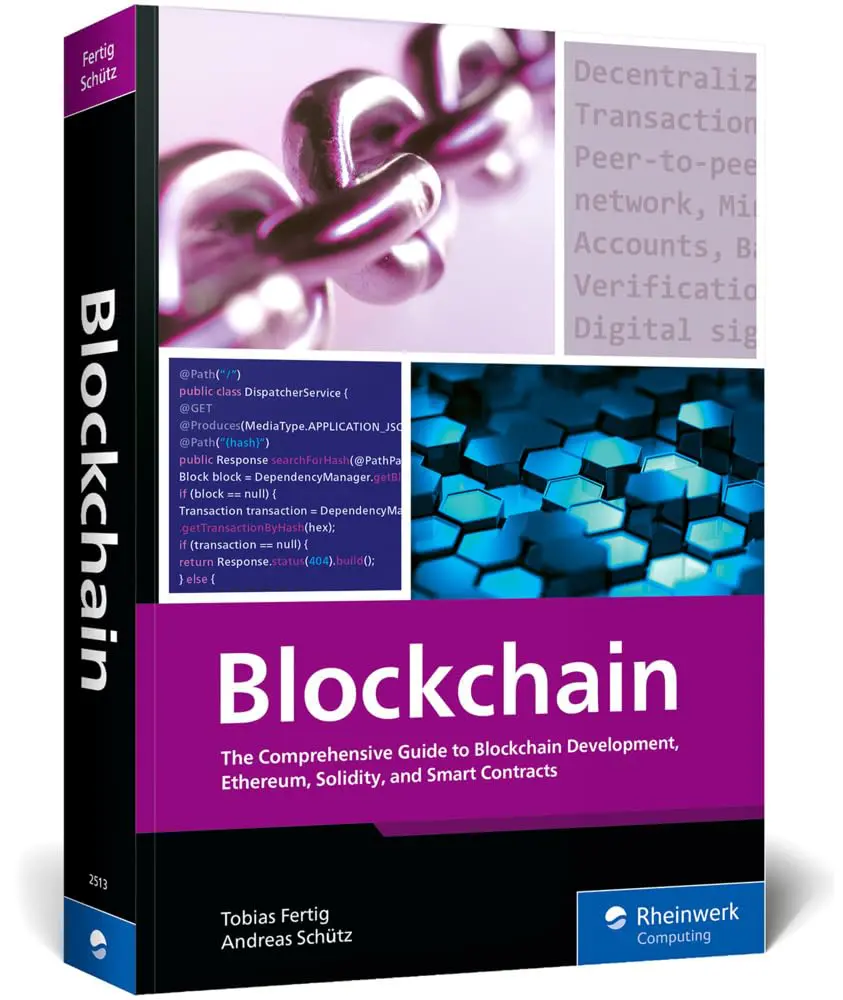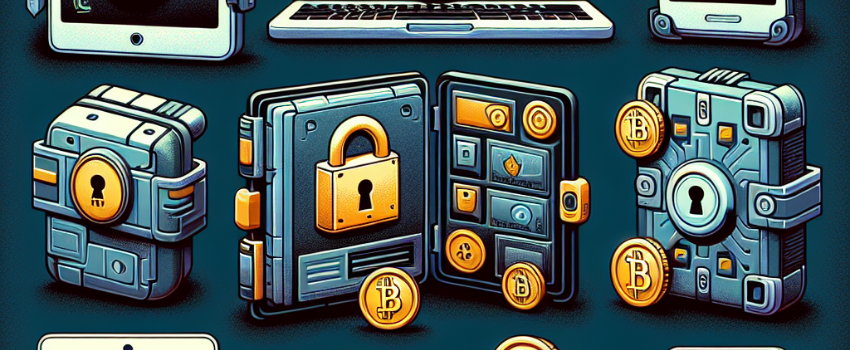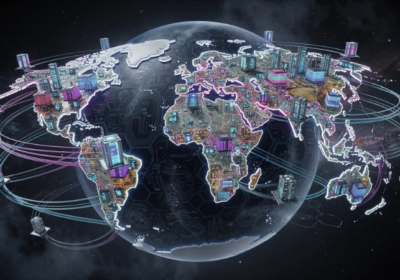Understanding Blockchain: Beyond Cryptocurrency
Understanding Blockchain: Blockchain technology is most famously associated with cryptocurrency, but this decentralized, transparent, and secure ledger has far-reaching applications that extend beyond digital currencies.
Blockchain is a breakthrough innovation that is revolutionizing industries such as healthcare, supply chain management, finance, and governance.
While cryptocurrency has been the poster child for blockchain, the technology’s potential across multiple sectors is becoming increasingly clear.
From securely managing medical records to streamlining international trade and automating legal contracts, blockchain is shaping the future of technology in ways that could transform the global economy.
This article explores the wide-reaching impact of blockchain technology beyond cryptocurrency, examining how various industries are leveraging this innovation to solve complex problems and enhance operational efficiency.
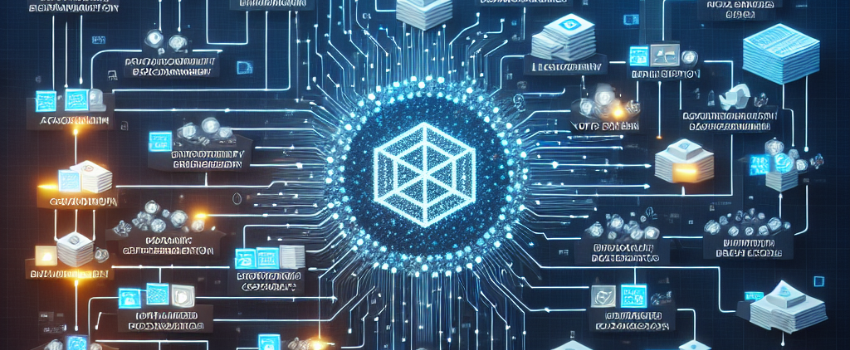
Blockchain: What Is It?
Before diving into its applications, let’s clarify what blockchain is.
Blockchain is a type of digital ledger technology (DLT) that records transactions across a network of computers.
These transactions are grouped in blocks and linked (chained) together in chronological order.
Each block contains a cryptographic hash of the previous block, ensuring the integrity and immutability of the chain.
Key Features of Blockchain:
– Decentralization: No single entity controls the network; instead, it is maintained by multiple participants (nodes).
– Transparency: All transactions are visible to network participants, providing a high level of accountability.
– Security: Cryptographic techniques and consensus mechanisms like proof-of-work or proof-of-stake ensure data integrity and protection from tampering.
– Immutability: Once recorded, data in the blockchain cannot be altered or deleted, making it a reliable source of truth.
Blockchain’s core attributes make it a transformative tool for industries beyond cryptocurrency, where security, transparency, and efficiency are paramount.
Blockchain Applications in Healthcare
The healthcare industry is notoriously complex, with challenges ranging from data security to patient record management.
Blockchain’s decentralized architecture offers an ideal solution to some of the most pressing issues in healthcare.
Enhancing Data Security and Privacy
In healthcare, patient data is sensitive and requires stringent protection.
Traditional centralized systems are vulnerable to data breaches and cyberattacks.
Blockchain’s decentralized ledger provides a secure environment where patient information can be stored, accessed, and shared without compromising privacy.
Blockchain technology ensures that patients have control over who can access their medical records.
The transparent, immutable nature of blockchain guarantees that once data is recorded, it cannot be altered or deleted, offering a reliable audit trail for medical professionals and patients alike.
Streamlining Clinical Trials and Research
Clinical trials involve large volumes of data and collaboration among researchers, hospitals, and pharmaceutical companies.
Blockchain can streamline this process by providing a single, trusted source of truth that ensures data integrity and eliminates duplication or manipulation of trial results.
Key Benefits:
– Transparency in trial data
– Faster validation processes
– Enhanced collaboration among stakeholders
Combatting Counterfeit Drugs
Counterfeit drugs are a global concern, endangering lives and costing the pharmaceutical industry billions of dollars annually.
Blockchain’s ability to track and trace products through the supply chain ensures the authenticity of medications, making it harder for counterfeit drugs to enter the market.
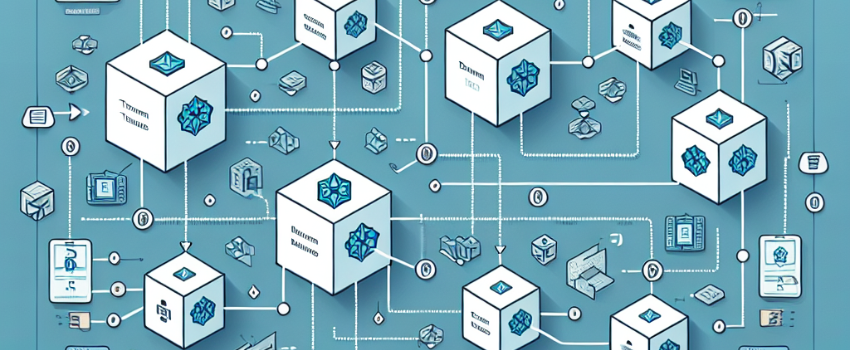
Blockchain in Supply Chain Management
Supply chain management is another industry where blockchain’s transparency and traceability capabilities shine.
In an increasingly globalized economy, consumers and businesses demand greater visibility into where products come from and how they are made.
Improving Transparency and Traceability
Blockchain enables companies to monitor the entire lifecycle of a product, from raw material sourcing to final delivery.
Each transaction in the supply chain is recorded on the blockchain, ensuring that stakeholders have a complete, accurate record of a product’s journey.
This level of transparency allows businesses to identify inefficiencies, prevent fraud, and ensure that products are ethically sourced and produced.
Companies like IBM and Walmart are already utilizing blockchain to track food items, enhancing food safety by providing real-time data on product origins and conditions during transport.
Reducing Costs and Enhancing Efficiency
Blockchain can also help reduce the costs associated with traditional supply chain management systems.
By eliminating intermediaries and streamlining the verification process.
Blockchain reduces the time and money spent on paperwork, manual audits, and coordination among suppliers and manufacturers.
Blockchain in Finance: Beyond Cryptocurrency
While blockchain’s first major application was cryptocurrency, its potential in the broader financial sector is immense.
Blockchain technology is transforming how financial services are delivered, reducing costs, improving efficiency.
And enhancing security in areas such as payments, asset management, and compliance.
Streamlining Cross-Border Payments
One of the most promising use cases of blockchain in finance is cross-border payments.
Traditional payment systems rely on intermediaries such as banks, which can slow down transactions and increase fees.
Blockchain, on the other hand, enables fast, low-cost cross-border payments by eliminating intermediaries and reducing transaction times from days to minutes.
Key Benefits:
– Reduced transaction costs
– Near-instant settlement times
– Enhanced transparency and security
Enabling Smart Contracts
Smart contracts are self-executing contracts with the terms of the agreement directly written into code.
They run on blockchain, and once the conditions of the contract are met, the contract automatically executes.
This eliminates the need for intermediaries such as lawyers or notaries, reducing the risk of human error and speeding up the contracting process.
Smart contracts are being used in a wide range of financial applications, from insurance claims to real estate transactions, providing greater efficiency and trust in the process.
Blockchain in Governance and Voting Systems
Blockchain’s transparency and security features make it a natural fit for governance and voting systems.
In traditional voting systems, fraud and manipulation are always a concern.
It provides a tamper-proof system that ensures every vote is recorded and counted accurately.
Enhancing Trust and Transparency in Elections
Blockchain-based voting systems provide a transparent, auditable trail of each vote, reducing the likelihood of voter fraud.
Once a vote is cast, it is recorded on the blockchain, ensuring that it cannot be altered or deleted.
This creates a higher level of trust in the electoral process.
Decentralizing Governance
Blockchain can also decentralize governance systems, allowing organizations, governments, and even companies to make decisions in a transparent and democratic way.
Blockchain-based governance models empower participants to vote on key issues and proposals, with every vote recorded and verifiable on the blockchain.
Frequently Asked Questions (FAQs)
1. What is the difference between blockchain and cryptocurrency?
Blockchain is the underlying technology that powers cryptocurrency.
While cryptocurrency is just one application of blockchain, the technology can be used in many other industries to securely record transactions and data.
2. How does blockchain improve data security?
Blockchain uses cryptographic techniques and decentralized networks to ensure that data is secure and immutable.
This makes it nearly impossible for unauthorized parties to alter or delete information recorded on the blockchain.
3. Can blockchain be hacked?
While no system is entirely immune to hacking, blockchain’s decentralized structure and consensus mechanisms make it highly resistant to attacks.
To alter data on the blockchain, an attacker would need to control a majority of the network’s computing power, which is extremely difficult and costly.
4. How is blockchain used in healthcare?
Blockchain is used in healthcare to securely store and share patient data, streamline clinical trials, and combat counterfeit drugs by providing transparency and traceability in the supply chain.
5. What are the benefits of using blockchain in supply chain management?
Blockchain improves transparency, traceability, and efficiency in supply chain management.
It enables companies to track the entire lifecycle of products, reduce fraud, and enhance the visibility of ethically sourced materials.
6. What industries are using blockchain besides finance?
In addition to finance, blockchain is being used in healthcare, supply chain management, governance, entertainment, and intellectual property.
Its potential to improve security, transparency, and efficiency makes it suitable for many different sectors.

Understanding Blockchain: Beyond Cryptocurrency Conclusion
Blockchain technology has evolved far beyond its initial use in cryptocurrency, offering transformative solutions across industries.
Its decentralized, transparent, and secure nature is solving complex problems in healthcare, supply chain management, finance, governance, and more.
As blockchain continues to mature, we are likely to see even more innovative applications that leverage its unique properties to revolutionize the way we store, share, and manage data.
By understanding blockchain beyond cryptocurrency, we can better prepare for a future where this technology plays a pivotal role in shaping industries around the globe.
For those who have only associated blockchain with digital currencies, now is the time to expand that understanding and explore how blockchain is unlocking new opportunities across multiple sectors.
This article has detailed blockchain’s far-reaching impact, but it is only the beginning. Keep an eye on this space as blockchain continues to break new ground in the technology world.



